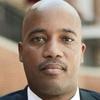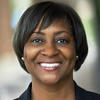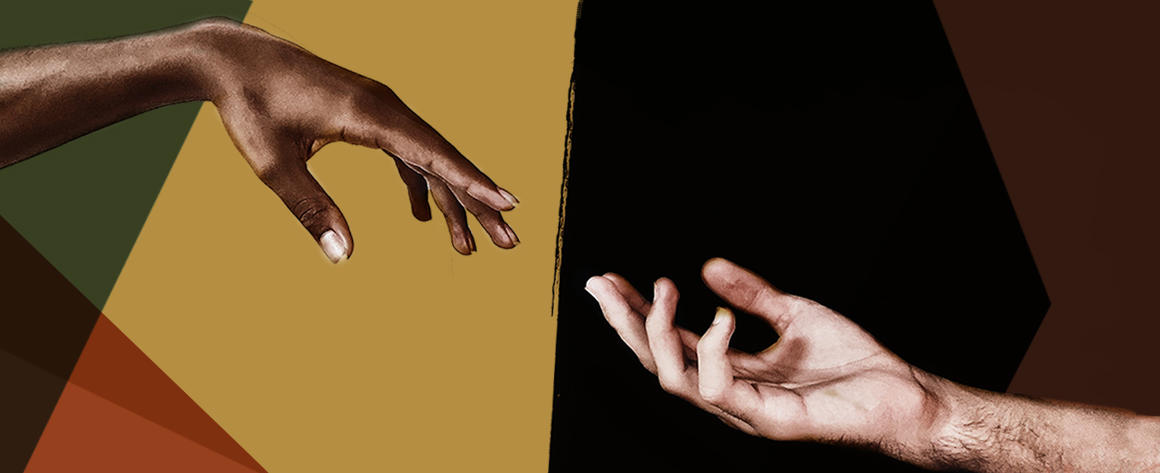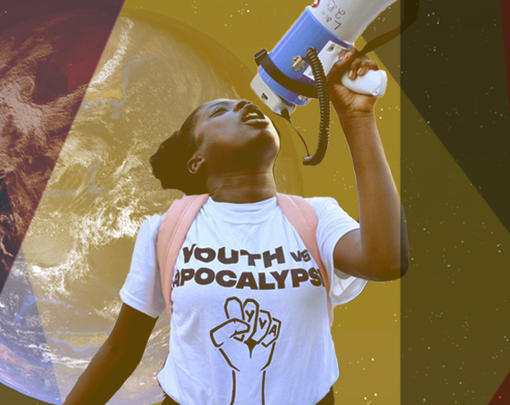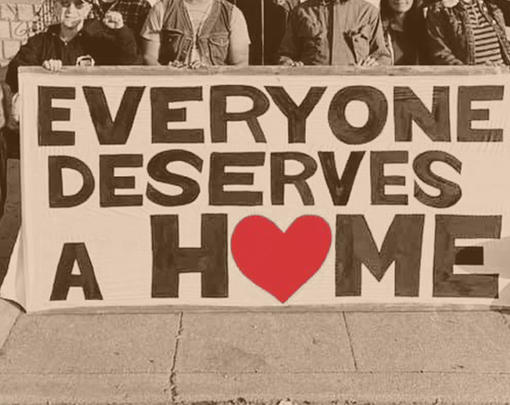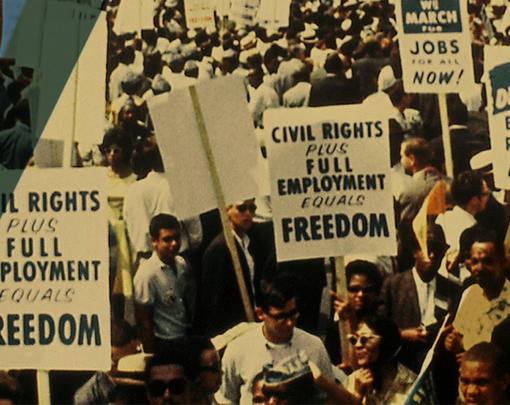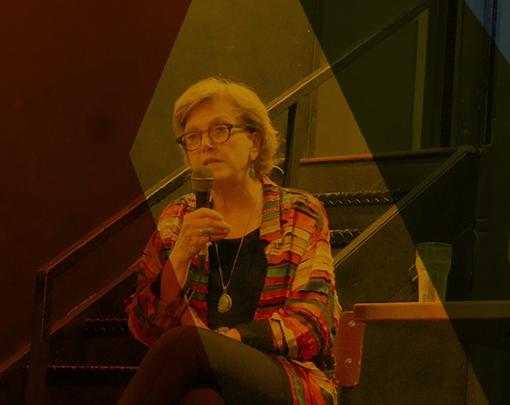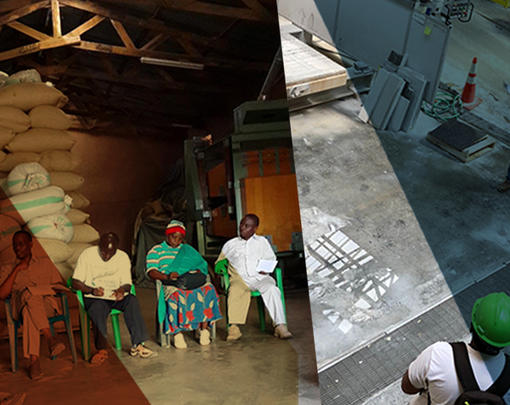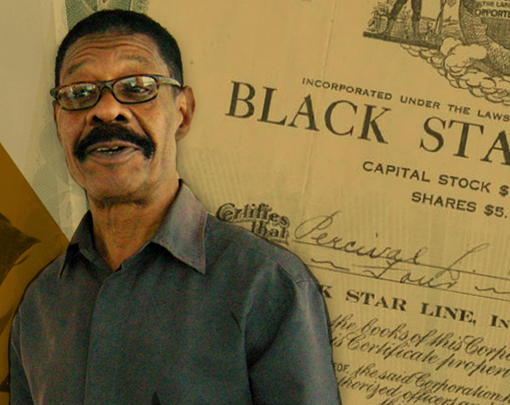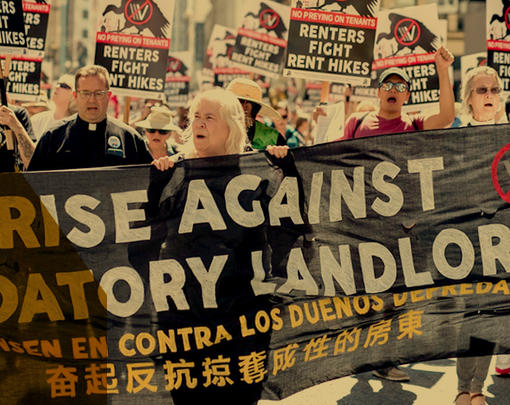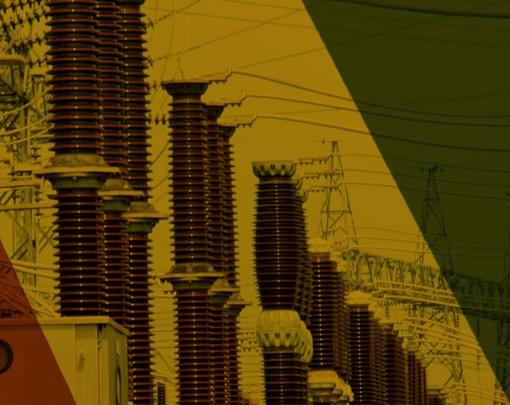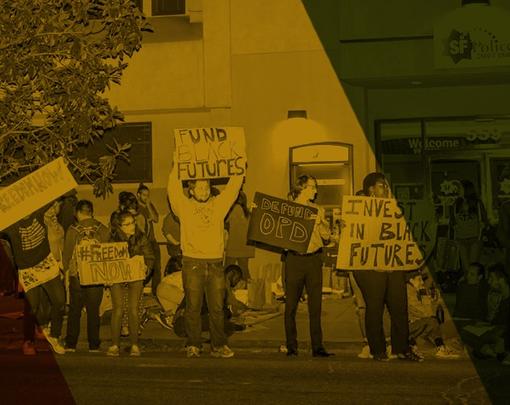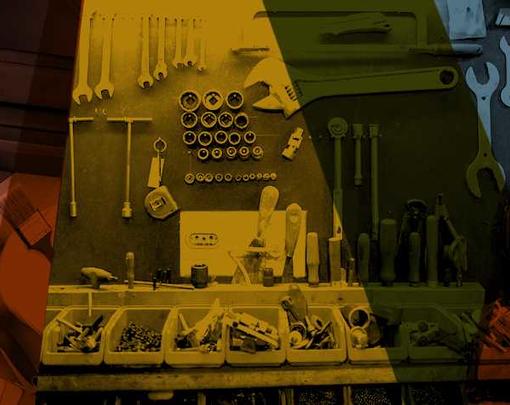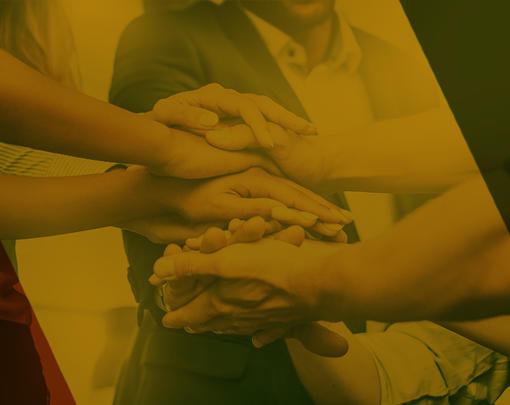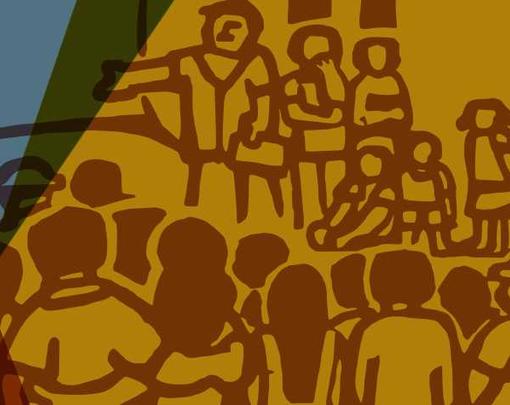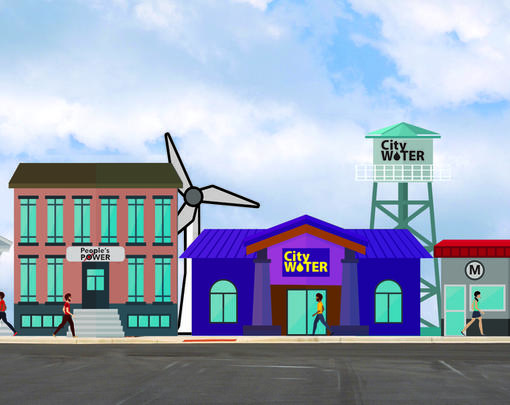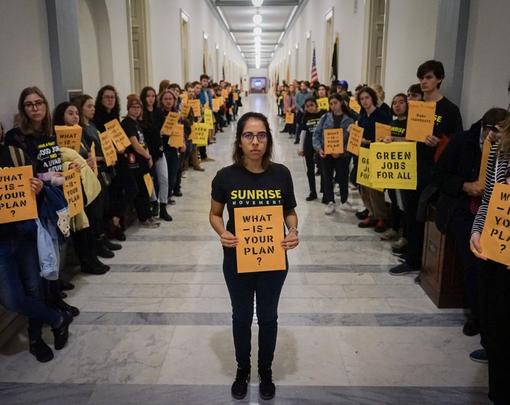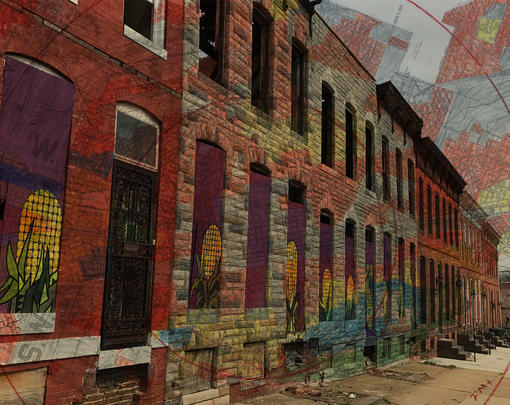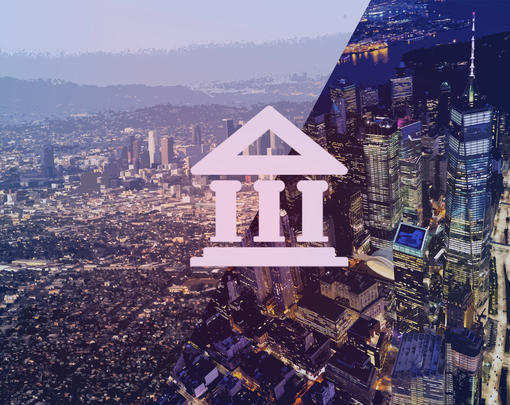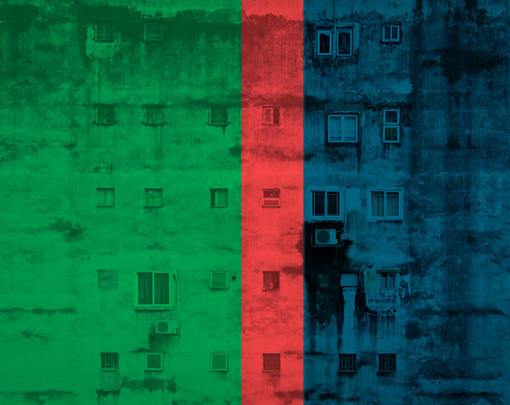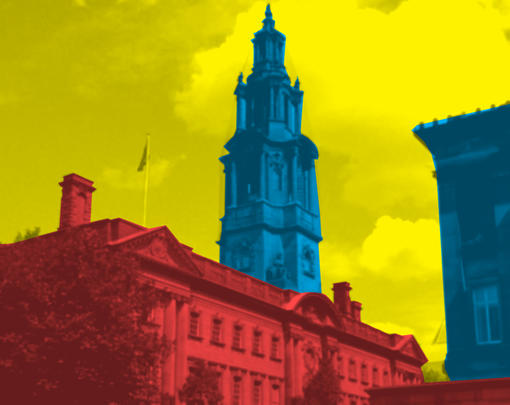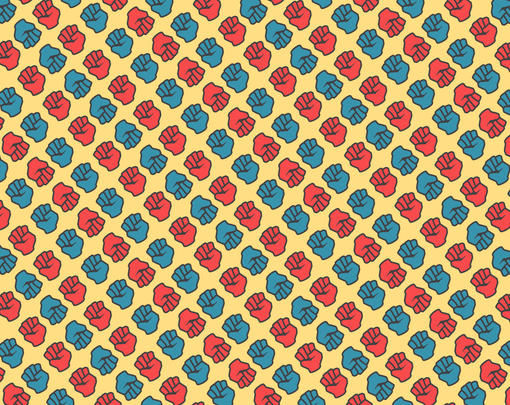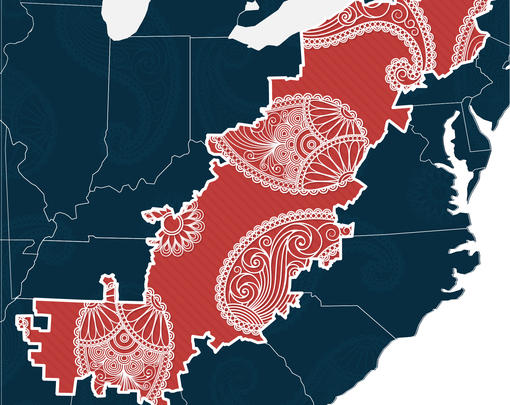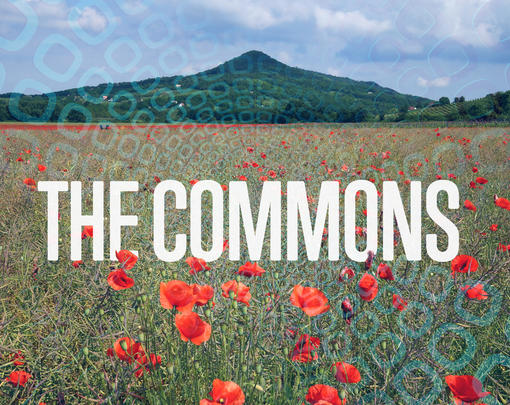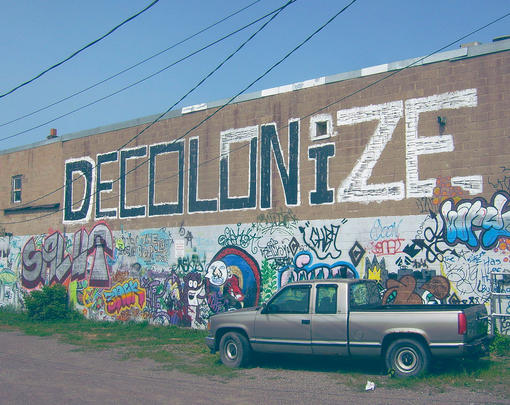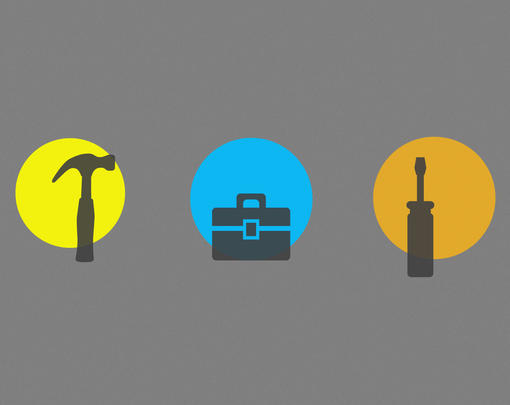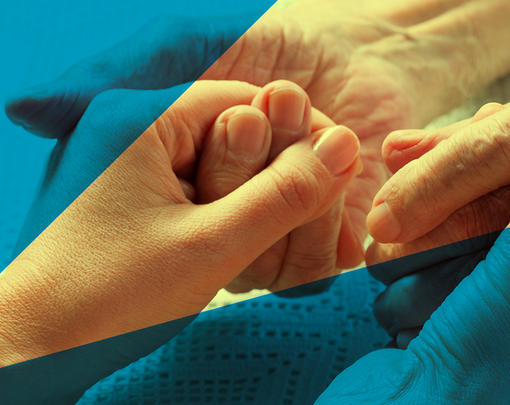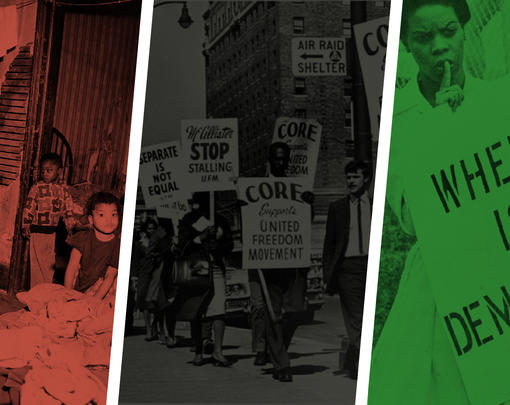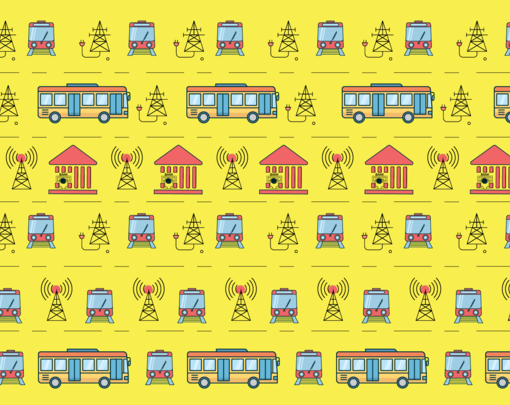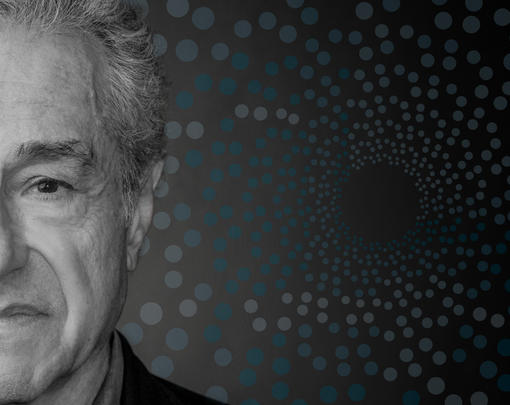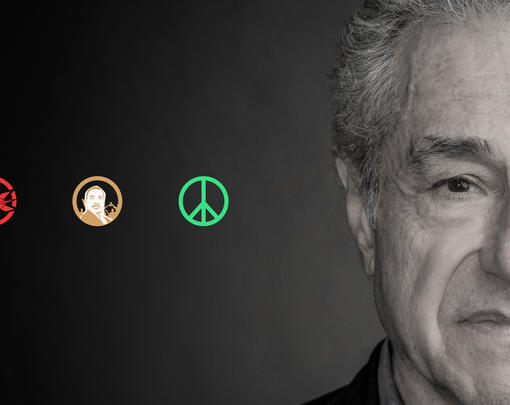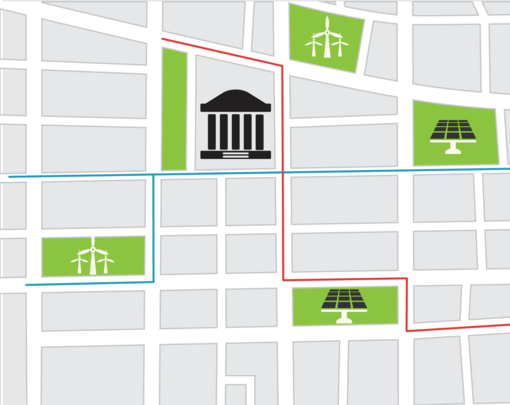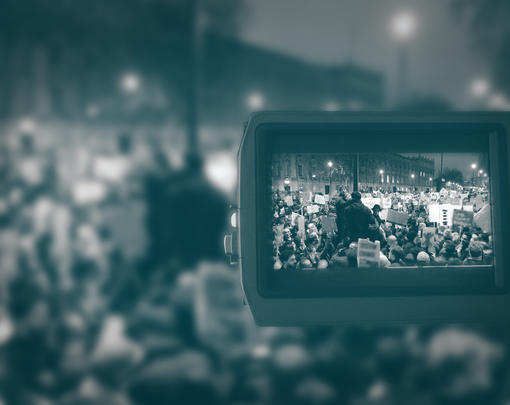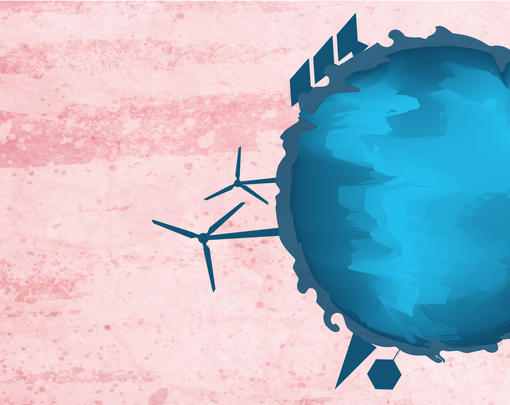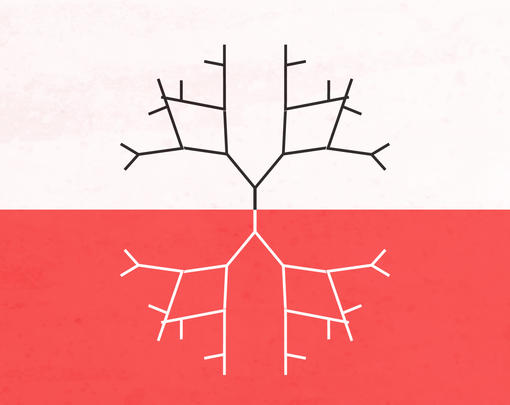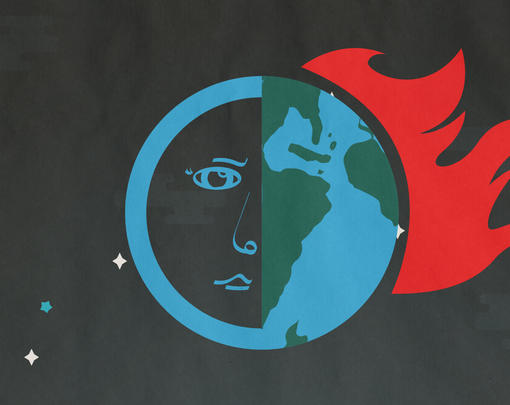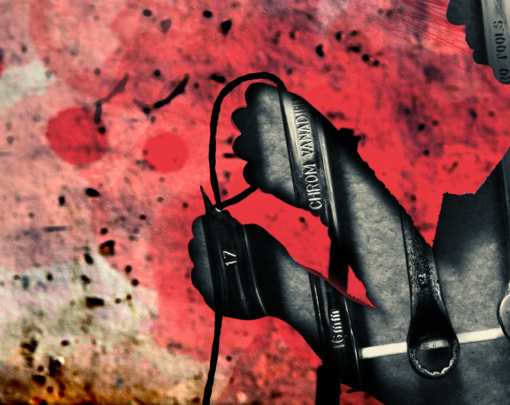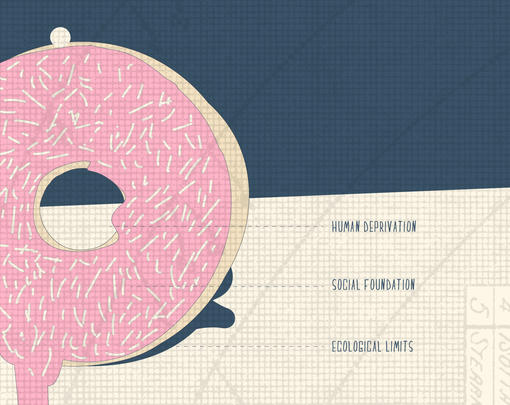Isaiah J. Poole: Since the founding of the United States, our nation has struggled with its own contradictory thinking about who is free and who is not, who is a citizen and who is not; perhaps most succinctly, who is a human and who is not.
For some, this is merely a question of policy, a debate to be had within the smoke-filled rooms of lawmakers arguing over voting blocks and government spending. For others, this is the question that continues to define not just our everyday lives but our very existence.
I’m Isaiah J. Poole and welcome to the Next System Podcast. Our guest host today is Rev. Ronnie Galvin Jr., Vice President of Racial Equity and the Democratic Economy at the Democracy Collaborative. Together we’ll be talking trauma, healing, and reparations. Let’s say that again: trauma, healing, and reparations.
We’ve talked on previous episodes of this podcast about the need for reparations in any system that comes next, both as a means to address the moral wrong of systemic racism and to rebuild the economic power stolen by a privileged class and its agents. However, this only addresses the economic half of reparative justice. As you will hear, the imperative is not just to repair, but to heal. And now, Rev. Ronnie Galvin Jr.
Ronnie Galvin: Joining us today is La June Montgomery Tabron, president and CEO of the W.K. Kellogg Foundation. La June has provided primary leadership for the “Truth, Racial Healing, and Transformation” framework that Kellogg is leading around the country and happening in 14 multi-sector community collaborations around the United States.
La June, thank you for joining us today and I just want to tell you that I am particularly excited about speaking with you. As you are leading the Kellogg foundation as a Black woman, I am married to a Black woman who runs a foundation, so I get a chance to see that from at least from a partner’s perspective and just know that there are many of us out here who are celebrating your leadership and cheering you on. So, thank you for holding it down and for what you bring to our field and philanthropy in particular. Welcome to the podcast.
La June Montgomery Tabron: Well, thank you, Ronnie, for inviting me and I congratulate your wife as well because, after a 33-year career in philanthropy, I know that her leadership is phenomenal as well so, thank you so much for acknowledging the journey that we’ve taken.
Ronnie Galvin: Yes, yes. And she might be upset if I don’t call her name, and that would be Dr. Yanique Alicia Redwood at Consumer Health Foundation, but I might even get in trouble for mentioning that, but I’ll deal with that later. So, but thank you for acknowledging her.
So on that note, why don’t we start with personal experience. One of the things that we’ve learned just, you know, being a part of the work, tracking the work that you are doing around racial healing, the big event that you had here in Washington, D.C. early this year, that personal experience and personal story is important to this work and so, La June, could you tell us a little bit about your experience as a Black woman leading the Kellogg foundation, one of the preeminent philanthropic organizations in the country?
La June Montgomery Tabron: Of course, and as I mentioned I will celebrate 33 years at the Foundation in May, and so you would know that it has been a journey. I have a financial background and so I started working at the foundation as its controller and I’ve just had a remarkable career here at the foundation. I think I gained a lot of respect early on the technical side of my capabilities. Very early in my career here, I was given the responsibility of leading some of our diversity work—and people are probably smiling because lots of us African Americans end up in that role no matter where you come from. And for me being a finance person, I had little experience, but I’ve grown into that space. And because I was given that opportunity as well as many others in the foundation, I was able to learn a lot about what we do in our work and we’re not funding or asking communities to do anything that we haven’t grappled with internally, so we’ve had a long history of understanding, first, diversity; we now call it racial equity. It’s very particular and we’ve defined what we mean by that and how it needs to show up in every workplace. But we also now understand how much it impacts how children thrive in this community and particularly the most vulnerable children. So my experience has been one that’s been because of my practice and because of the learning journey that we’ve had.
By the time I became CEO, our board had also gone through several training efforts in this space and we have a very enlightened board on issues of racial equity and they’re extremely supportive. So I feel like my process in becoming CEO was an unbiased process because we had already addressed issues of unconscious bias and racial equality in this organization, and I believe if we can do that in other organizations many other people will ascend to levels that I have been able to achieve.
Ronnie Galvin: Wow. You can’t see it right now–thank you for that–but I keep a pair of pom-poms in my office when I want to cheer, so I’m shaking them right now.
La June Montgomery Tabron: That’s great. That’s a good idea. I should get a pair.
Ronnie Galvin: You’ve got to celebrate these things. Thank you for sharing that story. And, and one of the things I’m pulling out as you’re talking about your personal story, you’re also sharing some of how Kellogg has shifted and–just want to telegraph for the folks that are listening–The Democracy Collaborative and the Next System Project are modeling organizations like Kellogg and others who have gone through the organizational transformation around racial equity. So, thank you for not just your personal leadership, but for what the organization has done that many of us are trying to model in the field.
La June Montgomery Tabron: Well, let me just give you the high-level thumbnail of this organization. So, we’re celebrating 90 years, this year. Starting in 1930, we have a wall of trustees from the very beginning of the foundation until now. From 1930 until about 1989, they were all white men with the exception of one woman, and she was very early; she started right after 1930 and was the secretary, but had a board role; then, white men until 1989, and we added our first two African-American trustees at that time. Today, we’re 75% people of color and 25% white–and that was at the end of 2019–so when you talk about an organizational transformation, for us, it had to start with our board. And I think what the board then allowed us to have is an authorizing environment where it was clear from the very top that this was not only a good thing to do and the right thing to do, but a must. And then you see the cascading of that transformation throughout the organization. We’re about 45, almost 50% people of color in the organization and, you know, there are great opportunities for everyone to thrive.
Ronnie Galvin: What a great story, and I imagine that as the organization was going through its own transformation that became the fertile ground that gave rise to the “Truth, Racial Healing, and Transformation” work.
La June Montgomery Tabron: Absolutely. For sure.
Ronnie Galvin: So on that note, this work is well known by many of us in the field and folks who are doing grassroots organizing and grasstops organizing—and it is, I think, a part of several things that are moving in the country that are shifting the conversation in cities and how we relate to each other. So, what is the kind of theory of change around the “Truth, Racial Healing, and Transformation” work? What’s the long game for you? And what are some of the examples of like how this is showing up on the ground in communities around the country?
La June Montgomery Tabron: As far as the theory of change, you know, we are about improving the lives of the most vulnerable children in society. So our bulls-eye and our North Star is how we’re seeing children thrive. But we know that in order for children to thrive, you know, their families must be stable and working and the communities must be equitable. And so when you think about our truth, racial healing and transformation work, it’s about going into those communities and looking at the systems that need to shift so that families and children can thrive, but knowing that you just can’t go into a community and mandate systems change. The people and leadership and communities perpetuate those systems and you have to get to the people. And so the theory of change is that you can bring people together in communities and start by telling the truth about their community, what the history is of your particular community and what trauma is that history leaving behind.
As you go back and visit that truth, you then take that into a space of healing where people can come together and receive one another as one humanity and began to acknowledge those stories of everyone’s truth. But then to bring of that knowledge together and use it to, to really begin to think about how those systems need to change so that everyone has an opportunity and together, then. work on those policy shifts and issues that you know, your community is dealing with that impacts children and families.
For example, when we started the truth, racial healing and transformation effort, we put out a call to the nation and you probably aren’t surprised by the cities and the communities that showed up, like Dallas and Chicago and Baton Rouge, Louisiana. All of these are tied with mass shootings or issues that have come up in these communities. People were grappling with them but really didn’t know how to come together. So, for example, in Chicago, we brought forward people from the community and they were dealing with issues of mass shootings, African American young men being shot not only by the police but by one another. But as they came together to grapple with these issues, what they determined was that trauma and healing were critical for them and they didn’t have the capacity of practitioners in Chicago that knew how to lead these efforts and that could facilitate these healing conversations.
So one of the things that Chicago wanted to do was to build a collection of practitioners who are capable of running healing circles. Since we’ve been investing in this work, they’ve trained over a hundred healing practitioners who are now going into communities who understand trauma and relationship-building and how to build trust and then use that circle and that space of a solid relationships, that foundation, to begin to think about what do we need to change in our policing practices, What do we need to change on the ground that would allow for all people to feel safe and also thrive. So that’s just an example.
Every community gets to work on these issues because we believe that they ultimately, have the capacity to change these systems, but they have to go through this process of truth, racial healing before they get to the transformation. For us, what we believe is racial healing eventually leads to racial equity, but can’t get to equity before you go through the work of the healing.
Ronnie Galvin: Thank you for that. And so our final question really points to this kind of synergy that we see and I think it’s a gap in our work. And I would love to get your perspective on it. Particularly, as I hear you talking about systems, right? And systems change. So, you know, of course, at The Democracy Collaborative and The Next System Project, we’ve done our own analysis about the system of wealth and wealth-building in the country as a determinant really of how children and families do and that that we need new kinds of ways for families and communities to build wealth. And we’ve been pretty successful just as you have been in building these kinds of cross-sector relationships between hospitals, colleges and universities, city government, and local philanthropy. In some cases, the impacted groups were coming together to set these experiments around what kind of economy or economic interventions we need so that families can build wealth. And so that infrastructure is there. But oftentimes, at least at this point, without the lens of racial equity and healing, do you have any advice for us as we’re activating these networks on the ground in 35 cities now around the country for how we should approach this racial healing work and what are the prospects for systems change that centered on racial healing and racial equity?
La June Montgomery Tabron: For us, the core to getting to this work around racial equity and wealth-building has to be some healing and relationship building. And when we think about, you know, healing and about a lot of healing is about trust-building and shared learning and shared understanding of some of these historical stories and traumas. But eventually, we believe, it gets to three pillars of the truth, racial healing and transformation work, which is the law, how are we effectively equalizing access to law and criminal justice and social justice. The second is separation and policies that divide us like housing policies and how housing policies of the past have been the most effective tool of racism in our society. And then the third piece is around the economy.
But in order to really get to the place of systems change in those places, what we know is that because of these structures, people have not connected. And it’s very difficult for people to have a conversation around some of these issues. The division and the discourse, the rhetoric here has always been something that has been fed to us. And so we all have this background of being taught how to be a racist in society or how the racialized narrative comes into all of our consciousness. So if you believe in individualism and you believe that the only reason why people have not succeeded is that they haven’t worked hard, it’s going to be hard for you to get to a conversation around wealth-building of any quality unless you go back through this process that we believe, which is a truth, racial healing, and transformation process. So that would start with how was wealth created in this country, the truth of that. You start with that history and that understanding and bring people to that point of understanding that as wealth was created it was created for some and not others. Some were intentionally left out and did not have access to the same opportunities for wealth building. But once you get to a place—and that’s going to be a hard conversation; it won’t happen without pain—and as people are really having to revisit their own truths in that space and open up to other stories and other perspectives in that space, if you can move to a point where there’s some shared understanding, then you can begin to think about then how we correct the barriers that were put in place so that more people can have access to wealth.
In our work, for example, we’re thinking about that. We’ve done things like looking at access to capital and determining that all did not have access to capital. So our entrepreneurs of color fund, which was a way of creating a pathway for entrepreneurs of color wanting to access startup and technical support to become business owners, was something that came out of that type of a conversation. It’s acknowledging that there needed to be that pathway and that there are ways to create those pathways. Our funds that we’ve partnered with JP Morgan Chase in this regard allowed for not only a great fund in Detroit, but now it’s being replicated in other major cities. But that’s just a way of them [addressing] what does the transformation look like that would allow more people from different starting points to become an entrepreneur. And we know that when people of color become entrepreneurs, they’re more likely to hire people of color and those funds are more likely to stay in communities and build communities. Those are the types of efforts that we are supporting, ones that really looked back at some of those systemic barriers and try to create innovative solutions to put everyone back at parity around their pursuit for wealth.
Ronnie Galvin: That’s encouraging to hear you leaning in on the question of systems change, community wealth building and how racial healing can be a part of that. We continue to learn much from you and the foundation and we look forward to advancing some of that thinking with some of the work we have going on the ground. And so we’re about to close and right before we jump off, I just want to make sure because we have been peppering you with questions, is there anything you want to ask us before we jump off? No pressure.
La June Montgomery Tabron: Let me ask you how healing shows up for you and, and the work that you’re doing in communities. And I ask you this because you know, there have been times where I have been asked why did the Kellogg foundation, you know, funds some of this soft work. And I firmly believe that this isn’t soft work at all. In fact, it is the most difficult work that everyone else has avoided. But if you don’t start with this trust-building, relationship-building and bringing people together, any mandate won’t sustain itself and, don’t you know, we’ve seen laws that we’ve put in place that have been reversed and people have just come up with new workarounds. And so in your work, do you see the need for healing and how do you all address these issues?
Ronnie Galvin: Oh, thank you so much for asking that question. And I would say that we are on the front end of that. From folks who follow our work, they will see that we are really leading the field with some of the technical aspects and the models for like what the economic interventions need to look like so that families who’ve been traumatized by the economy can actually participate and build wealth in the economy. So we focused on that for a while. And this piece around impacted groups, traumatized groups, the systems that have traumatized people, this is really the next frontier for us. And there are folks out there who are deep underneath the grassroots, Le June, who had been already doing this work. And we’re trying to connect with them in the places where we already have anchor relationships to see if we can build the sweet-spot relationships between grassroots folks who have been impacted negatively by the economy and the leaders who are actually in the institutions that are driving the economy in these local settings. So we are just on the front end of trying to create these kinds of sweet spot relationships between those two groups.
I will tell you that I come to this work with a faith-based background and with community organizing as a part of my DNA. And while I was in seminary Desmond Tutu was a professor of mine for a semester at Emory. And so he talked over and over and over about the truth and reconciliation work that they did in South Africa. And he said the same thing you did. He said, you know, the rest of the world or many parts of the world were saying, well, that was the easy way out. And he said it is the hardest thing for them to do. Right. And so I agree with you that this is hard work and, I would say at this point, the healing work, particularly since my colleagues are entering in mostly at the grasstops of this work and I enter in mostly at the grassroots of this work.
One of the most healing things—I just got back from Columbus. Ohio this morning. We’re working with a group there. One of the most healing things that I’ve seen happen at this phase of the work for us is was when we set up rooms where the power dynamics are operating at different levels, and the people who have struggled the most, who have suffered the most, are at the center of the conversation and the work we’re doing. Just that kind of affirmation of their humanity and their leadership, I think for us is kind of the way that we’re entering in. But we certainly have a long way to go, and we want to continue to learn from leaders like you and organizations like Kellogg so that we can do this work more effectively in place with the lens of racial healing and racial equity. So we’re just starting, we’re just starting. But thank you for that question.
La June Montgomery Tabron: Well, that’s great. That’s why partnerships are so critical. We are glad that you are a partner and hopefully, you know, that will continue into the future. What you’re learning and what we’re learning collectively can be very powerful as we continue to work on systems change and transformation for communities and families with children.
Ronnie Galvin: Yes, ma’am. And I dare say in these times when the ground seems very shaky and unsteady that, with the kind of work that you’re doing in your leading and many of us are following, we could actually be helping America finally live up to its highest ideals and aspirations.
La June Montgomery Tabron: We believe so. So thank you.
Ronnie Galvin: I do, too. And I’m shaking my pom-poms again.
La June Montgomery Tabron: So am I. I’m going to get some.
Ronnie Galvin: Thank you so much for joining us.
La June Montgomery Tabron: Absolutely. Thank you so much. It’s been a pleasure. Thank you.
The Next System Podcast is produced by Luis Garcia de la Cadena. Previous episodes and transcripts are available at thenextsystem.org/podcast. The theme song, “A New Start,” is by Zoe Blade. Find her music at zoeblade.com.
